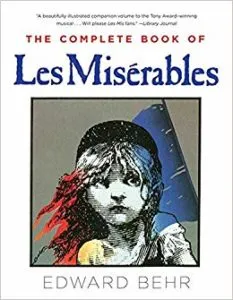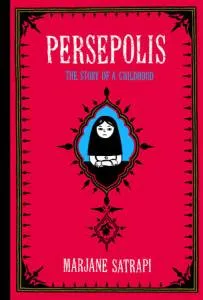
7 Tips for Finishing Very Long Books
This content contains affiliate links. When you buy through these links, we may earn an affiliate commission.
We’ve seen them sitting pretty on bookshelves. A Game of Thrones. The Stand. Les Misérables. We’ve all thought, I’ll get to it someday…but it’s a very long book.
 Well, that someday is today (or whenever you’re ready). I think the most intimidating part of reading a long book is just getting over staring at it in disbelief. My first thought is always awe for the author for writing so many words.
My second thought is questioning if I’ll ever finish the book. Case in point: it took me five years to complete The Historian by Elizabeth Kostova.
I figure that I’m not the only one intimidated by very long books, so here are some practical tips that’ll help you finish one that’s been sitting on your shelf for far too long. For the sake of this article, let’s assume that a “very long book” is 500 pages or more—it should look like a brick.
Well, that someday is today (or whenever you’re ready). I think the most intimidating part of reading a long book is just getting over staring at it in disbelief. My first thought is always awe for the author for writing so many words.
My second thought is questioning if I’ll ever finish the book. Case in point: it took me five years to complete The Historian by Elizabeth Kostova.
I figure that I’m not the only one intimidated by very long books, so here are some practical tips that’ll help you finish one that’s been sitting on your shelf for far too long. For the sake of this article, let’s assume that a “very long book” is 500 pages or more—it should look like a brick.
Around page 380 is when I would normally finish an average-sized book. At this point in a long book, I feel like I’m not accomplishing much. When this happens, I take a step back and read something short. Really short. Something I can finish in one or two sittings and will give me the confidence to complete my long book.
Graphic novels usually do the trick. Two amazing ones are Persepolis by Marjane Satrapi and Burma Chronicles by Guy Delisle. I also love a good graduation speech—Make Good Art by Neil Gaiman and Very Good Lives by J.K. Rowling are wonderful (and inspirational).
Perhaps this is the English major in me talking, but I really do love taking notes in longer books, especially classics like Native Son and David Copperfield. If you find the prospect of defacing your book abhorrent, then you can use sticky notes or a journal.
The physical nature of penning your thoughts can transform you into an active reader who questions rather than accepts the motivations and actions of the characters. It’s also fun to look back and see what your original thoughts were.
 Well, that someday is today (or whenever you’re ready). I think the most intimidating part of reading a long book is just getting over staring at it in disbelief. My first thought is always awe for the author for writing so many words.
My second thought is questioning if I’ll ever finish the book. Case in point: it took me five years to complete The Historian by Elizabeth Kostova.
I figure that I’m not the only one intimidated by very long books, so here are some practical tips that’ll help you finish one that’s been sitting on your shelf for far too long. For the sake of this article, let’s assume that a “very long book” is 500 pages or more—it should look like a brick.
Well, that someday is today (or whenever you’re ready). I think the most intimidating part of reading a long book is just getting over staring at it in disbelief. My first thought is always awe for the author for writing so many words.
My second thought is questioning if I’ll ever finish the book. Case in point: it took me five years to complete The Historian by Elizabeth Kostova.
I figure that I’m not the only one intimidated by very long books, so here are some practical tips that’ll help you finish one that’s been sitting on your shelf for far too long. For the sake of this article, let’s assume that a “very long book” is 500 pages or more—it should look like a brick.















